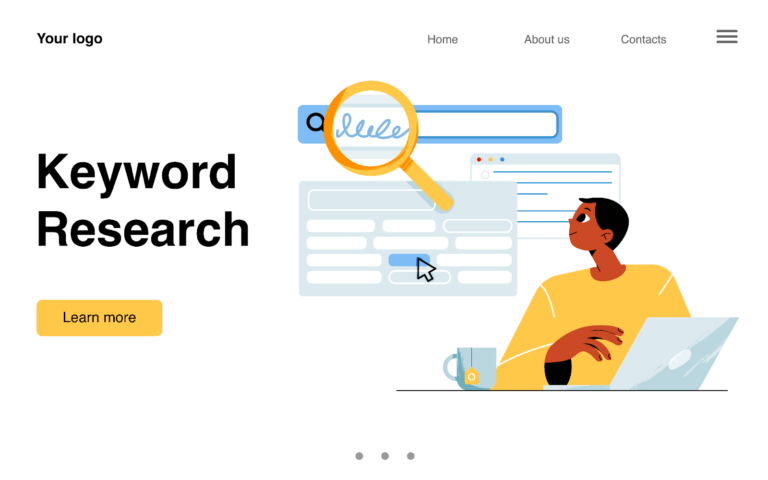Setting up an online startup in the UK comes with important legal responsibilities. Understanding business structures, meeting legal requirements, and having the right contracts in place are essential steps to protect your company and operate legally.
If you miss a key legal document or requirement, you could face fines, disputes, or even business closure. By learning about compliance, contracts, and business structures, you take the first steps to building a secure foundation for your UK online startup.
This guide offers clear information to help you avoid common mistakes and meet your legal duties from the very beginning.
Choosing The Right Legal Structure
The way you structure your business affects taxes, paperwork, liability, and your ability to raise funds. Each legal structure in the UK comes with its own rules and costs you need to understand before starting your online startup.
Sole Trader
As a sole trader, you run your business as an individual. You keep all after-tax profits but are personally responsible for any losses.
Key facts:
- Simple and fast to set up
- You register with HMRC and submit a Self Assessment tax return each year
- Fewer ongoing reporting requirements than other structures
However, your personal assets are at risk if the business cannot pay its debts, as there’s no legal separation between you and your business. This is suitable if you want full control and are starting a small venture alone. For many new online startups, it offers flexibility but may limit growth and funding opportunities.
Limited Company
A limited company is a legal entity separate from its owners (shareholders) and directors. Your personal finances are usually protected from the company’s debts.
Main features:
- Ownership and control can be split between directors and shareholders
- Corporation tax applies to company profits, which is often lower than income tax rates
- More credibility with banks, investors, and some suppliers
You will need to register with Companies House, keep formal accounts, and follow strict record-keeping rules. Some administrative costs are higher, and filing requirements are more complex. This structure is best if you want to attract investors or grow your business beyond just yourself.
Partnership
A partnership allows you to share ownership and responsibility with one or more people. You and your partners share profits, losses, and decision-making.
Essentials:
- Each partner registers with HMRC and pays tax on their share of profits
- Simple to set up and manage on a day-to-day basis
- You can create a partnership agreement to set out roles, profit splits, and what happens if someone leaves
There is no legal separation between the business and its owners, so each partner is personally liable for all debts. This option is common for businesses run by friends or family, but risks and disagreements should be prepared for with clear contracts.
Comparison Table
Legal Structure Taxation Liability Paperwork Complexity
Sole Trader Income Tax Unlimited Simple Low
Limited Company Corporation Tax Limited Formal accounts Medium
Partnership Income Tax Unlimited (shared) Moderate Low-MedKey Legal Compliance Areas For Startups
When launching an online startup in the UK, legal compliance covers both how you collect data and what rules apply to your contracts. Careful attention to these areas will help your business avoid fines, earn trust, and stand on solid legal ground.
GDPR And Data Protection
As an online business, you must comply with the UK’s data protection laws, especially the General Data Protection Regulation (GDPR) and the Data Protection Act 2018. You need clear permission before collecting or using personal data from your customers or users.
Inform people about what data you collect, how you use it, and any third parties you share it with. This information is usually provided in a privacy policy. Users must be able to access, correct, or delete their data upon request.
Adequate security measures, such as encrypted storage and secure payment systems, are required to protect user data. If you face a data breach, you are legally required to report it to the Information Commissioner’s Office (ICO) within 72 hours if it could risk people’s rights and freedoms.
Non-compliance can lead to heavy fines or prosecution. Regularly review your practices and update your privacy policies to stay compliant. Training staff on data protection is also essential.
Terms And Conditions
Terms and conditions set clear rules for users when they interact with your website or buy your products and services. They help protect your company in case of disputes.
Your terms should explain:
- Accepted uses of the website
- Payment terms
- Delivery details
- Refund and return policies
- Limits of your company’s liability
- How users should contact you
For e-commerce, you must meet extra rules under the Consumer Contracts Regulations and the Electronic Commerce Regulations, which require you to give specific information and cancellation rights.
Terms need to be easy to find and simple to understand. It’s best practice to have users actively agree to them, such as by ticking a box before making a purchase. Well-drafted terms help prevent misunderstandings and show that your business is both trustworthy and professional.
The Importance Of Contracts And Legal Documentation
Legal documents are essential for running a UK online startup. They help protect your business, manage risks, and ensure both your rights and your customers’ rights are clear.
Client Agreements
You need to have written agreements with your clients. A clear contract protects both you and your clients by setting out the scope of your work, payment terms, deadlines, and rules for how changes or problems will be handled.
Good client agreements also cover what happens if either party wants to end the relationship. This will help prevent legal disputes. You should also include clauses that address intellectual property, confidentiality, and responsibilities if something goes wrong.
It’s best to avoid using informal email chains as contracts. Instead, always use properly drafted agreements that both parties sign. This gives you a solid legal basis if disagreements arise, and helps set the professional tone of your business.
Website Terms And Conditions
Website terms and conditions explain the rules for using your site. These documents tell users what they can and cannot do, limit your liability, and protect your intellectual property.
Important sections to include:
- Payment terms
- Return and refund policies
- Data protection statements
- Limits of liability
- Intellectual property notices
Having clear terms and conditions helps build trust with your users and shows you are professional. It also helps meet your legal obligations and can protect you from disputes or complaints by explaining rights and processes upfront. Make sure your terms stay updated and easy to find on your website.
Intellectual Property Basics For Protecting Your Brand
Intellectual property (IP) is essential for startups. It helps you control how your brand, logo, and ideas are used. Protecting your IP can stop others from copying or using your creation without permission.
There are several key types of IP:
Type What It Protects How To Apply
Trademark Names,Logos,Slogans Register with the UK IPO
Copyright Original Works Designs Automatic Upon creation
Patents New Inventions Apply through the UK IPO
Design rights Shape, look of products Apply or unregistered right applies
Registering a trade mark is important for your brand name and logo. This step gives you the right to stop competitors from using a similar name or logo.
Copyright protects your original content, like website text, photos, or videos. You do not need to register copyright in the UK—it is automatic.
Patents cover new inventions or technical solutions. This process is detailed and can take time, but it is important if your startup has a new product.
Design rights protect how your product looks. Some rights are automatic, while others require registration.
You should review what IP assets your business creates. Keeping clear records of your designs and ideas helps if you ever need to prove ownership or defend your rights.
Handling Disputes And Accessing Reliable Legal Help
Disputes can arise in any business, from payment disagreements to contract misunderstandings. It’s smart to prepare for issues before they happen.
Keep good records of your contracts, emails, and agreements. Clear documentation makes it easier to solve problems and prove your position if needed.
If a dispute happens, try to resolve it informally first. Discuss the issue calmly with the other party. Most problems can be worked out by talking directly.
If you cannot reach an agreement, consider mediation or arbitration. These are quicker and less expensive than going to court.
You may need professional legal help if the dispute continues. Look for a solicitor with experience in startups or your industry.
Check the Law Society website for accredited solicitors:
For businesses seeking legal guidance on compliance and regulatory frameworks, Johnson & Boon Solicitors offer expert advice tailored to commercial needs.
Checklist for accessing legal support:
Legal issues can be stressful, but having expert help makes a big difference. Take your time to choose a lawyer you trust.












